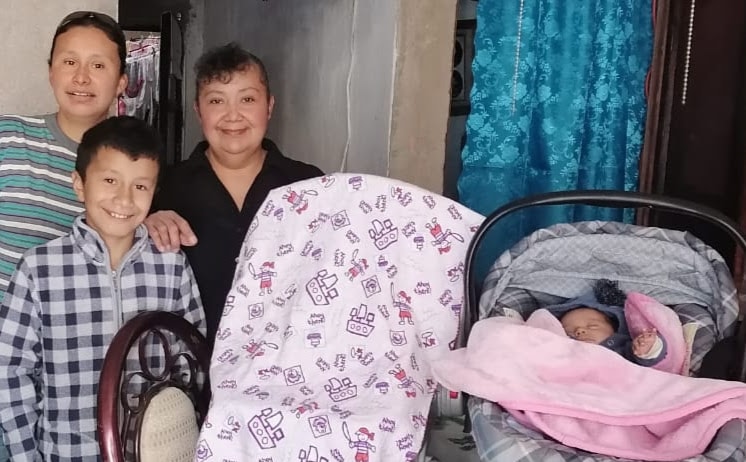Working Poverty in San Antonio
If you visit the charming square of San Antonio, there are many endearing sights and sounds familiar to a Mexican plaza: flowers blooming, children playing, dogs barking, the smell of a nearby taco stand, women shopping or neighbors catching up on news and gossip. As the local bus rounds the square, you may notice someone like Gabriela, a young woman, accompanied by a relative, getting on the bus. Her hair is nicely combed, her modest clothes are clean and pressed. She is on her way to Guadalajara to visit her sick baby in the hospital. What might be shocking is that Gabriela’s bus fare to Guadalajara consumes most of her family’s weekly food budget. Gabriela’s family consists of twin babies, her husband and her parents, who both have disabilities.
Gabriela is part of the 44.5 percent of the Mexican population experiencing working poverty. This means that her family’s wages are less than the cost of the basic food basket (items that meet minimum caloric requirements, but not all nutritional requirements). Working poverty rates have risen dramatically during the pandemic year of 2020, partially due to unemployment and partially to the increase in the price of fruits, vegetables and energy. (1)
To the casual viewer, Gabriela appears very pulled together, but in reality, she is worried because today, her family may have to make difficult choices with their reduced food budget. What will they do without? Maybe less protein and fill everyone up with a tomato noodle soup? Forgo bottled water and risk eventual kidney disease?
Another example is Alberto, an entrepreneur. Alberto lives in a very modest house with his wife, their two kids, his widowed mother, a brother and a sister. His mother has vertigo and needs medical care. Before COVID, Alberto’s family depended upon his candy stand that he operated on the Chapala malecon. There are no longer enough visitors to the malecon to make that business viable. Now he walks daily through the streets of San Antonio, trying to pick up odd jobs. He is noticeably thin because he has lost weight. Even combining Alberto’s earnings with those of his brother, they cannot afford basic foods let alone medicine.
These are two examples of families making difficult choices due to working poverty, and this is why Foodbank Lakeside distributes monthly despensas (pantry items) containing groceries such as rice, beans, oats, eggs, milk, soap and toilet paper. Just $18.00 USD, or $23.00 CAD or $370.00 MXN pesos can help feed an average family for a month.
Sweet Lucy Says Thank You!

If you came across Lucy on the streets of San Antonio, you might think she is a teenager. She is very thin, less than 5 feet tall, with a sweet, gentle smile. In fact, Lucy is 28 years old and has had kidney disease for the past ten years. Because of Lucy’s frequent visits to the hospital and her fluctuating blood pressure, she cannot work.
We visited Lucy at her home, which is no wider than 10 feet, with a humble yet joyful courtyard containing a rambunctious dog and a happy four-year-old visiting niece. Lucy lives with her 52-year-old sister, who is herself widowed. Lucy never complains that her family experiences food poverty due to illness and loss of the primary income earner.
Although Lucy has lost touch with her friends from school, she is in good spirits. She was wearing her favorite colors: blue and pink, and is looking forward to her favorite time of the year: Christmas. Lucy has hopes and dreams for the future; she loves to cook and hopes that she can obtain training as a cook if she gets a kidney transplant.

